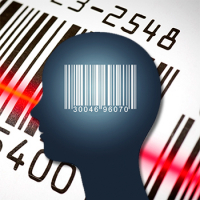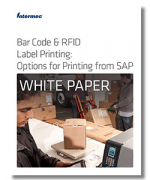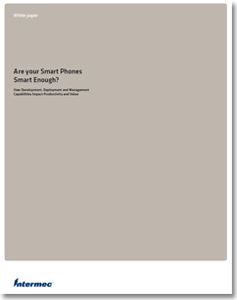Are your Smart Phones Smart Enough?
How Development, Deployment and Management Capabilities Impact Productivity and Value.
BlackBerries popularized the smart phone, then the iPhone revolutionized and consumerized the category.
Droids are the hottest models today – but that could change tomorrow. Meanwhile, Windows Mobile models continue to outsell other handheld computers used in the enterprise.
There is always plenty of buzz about what makes smart phones cool, but enterprises must focus on what makes users more productive. Why do companies buy smart phones and rugged mobile computers? They do so to:
- Improve productivity and efficiency.
- Increase sales and revenue.
- Improve customer satisfaction.
- Lower operating costs.
Why put these benefits at risk with a fragile solution?
The ability to exchange data and run apps does not make a smart phone a true enterprise tool. There is a higher standard for smart phones that will be used as mobile computers to support merchandising, service, trucking, route sales and other professionals who work primarily at customer sites.
Software, deployment and support account for approximately 80 percent of the total cost for using smart phones in these environments. To minimize these expenses, enterprises must understand the features and capabilities that make smart phones friendly for specialized enterprise environments.
This white paper explains how a smart phone’s enterprise readiness impacts its performance and value.
What’s Related




Favorites





